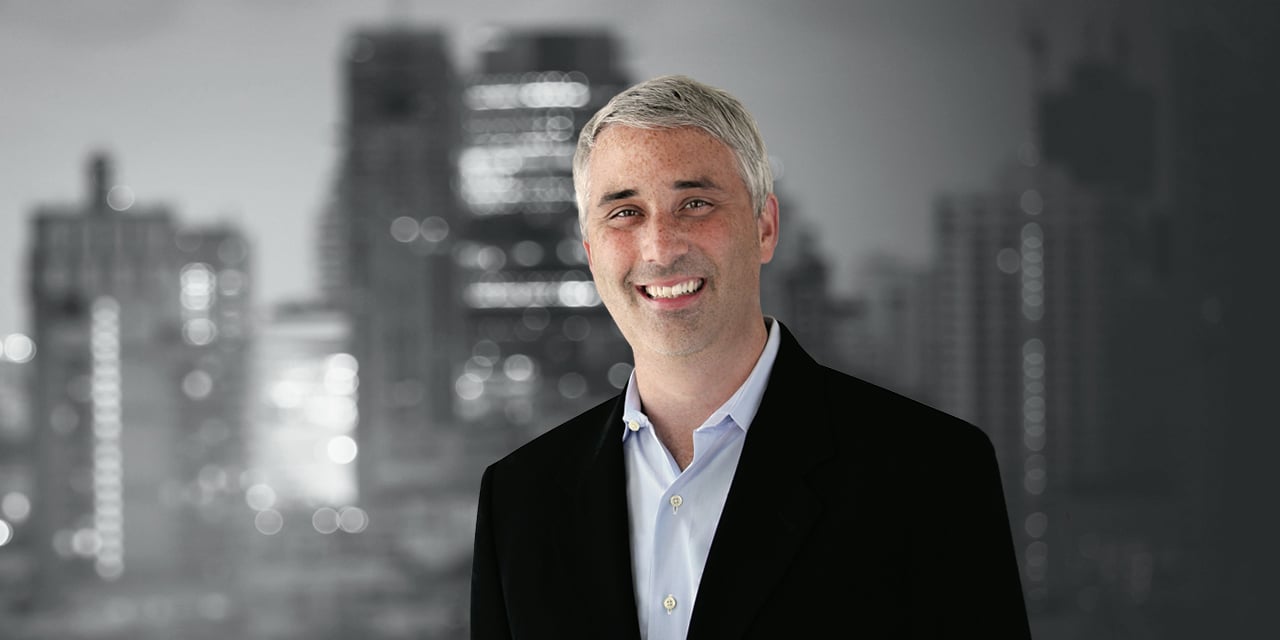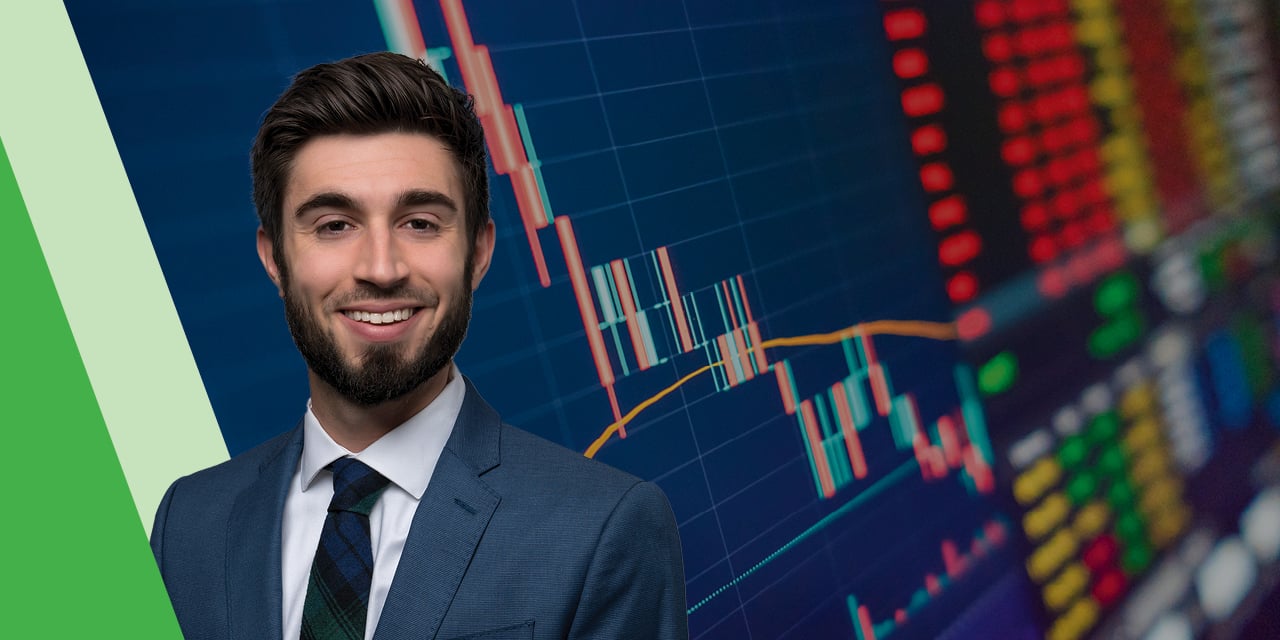
All That Matters: Hype Cycle, Fear Cycle
Is artificial intelligence over-hyped? In this month’s episode, Mike and Ross tackle the current AI “hype cycle,” and then reflect on examples of recent “fear cycles” including the debt ceiling debate, U.S. dollar’s reserve currency status, and central bank digital currencies.
Is artificial intelligence over-hyped?
Mike:
AI is the main topic that I've been asked about at client events recently: What is it? What could it be? Will it take jobs away? Let me give you my 30,000 foot view. AI could be a massive productivity enhancer for a society and an economy. Remember, an economy (and therefore a stock market) is basically how many people are working times what they produce. AI could be a big, big boost for productivity. Let me give you two quick examples:
- My wife's a real estate agent and she gets a listing for a home and it's a nice four bedroom, three bathroom, colonial brick home. And she goes into Chat GPT and she says, “write me a listing for a four bedroom, three bathroom, colonial brick home at this location, keep it to 50 words.” And it churns it out for her. Suddenly, she has this digital assistant.
- Adobe has this program called Photoshop. It's a hard to use program that graphic designers use. But now, if you or I had a picture of a bike rider and you wanted to put them into a field or on the Tour de France, you'd have to find the pictures and work it through. Now, you just go into a box and you say, “put this rider in a field, put this rider in the Tour de France.” Productivity just instantly soaring.
So Ross this could be a massive productivity enhancer, right?
Ross:
No matter what our job is, we all have those little tasks that annoyingly take time, and you feel like you should have a better way to do them. We’re in finance, and so we work in Excel a lot to process data and make charts. And if you're stuck in Excel, you can go to Chat GPT and request that it write a formula, and in seconds it spits it out. With every field, whether it's in a factory or at a desk, we all have those little jobs that can be enhanced by something like this. I think it's going to be a major boon for long-term productivity.
Will AI take jobs away?
Mike:
I’m a history guy; let’s step back into history:
- In the mid-1800s, about 60% of workers in the United States worked in agriculture. Now it's 3%.
- In the mid-1960s, about a quarter of our population worked in manufacturing. Now it's less than 10%.
What happened to those people? Are they unemployed? No, new jobs and new roles were created. That is likely what's going to happen here. I tell any young person I can talk to: the job you're going to get probably doesn't even exist yet. For example, a YouTube influencer was nothing when I was growing up, and now they're everywhere.
One more point to share: In the 1970s, the ATM machine was created. People thought there would be no more bank tellers. But ATMs just improved bank profitability; it lowered costs and increased quality. By the time that ATM machine was widely adopted, there were more bank branches because it made it cheaper to open a bank branch. It made it more efficient, and there were more human tellers. The notion that technology takes away jobs is not proven out by history.
Ross:
I agree. I mean, could it be lumpy along a transition? Almost certainly. That’s been the case with other big transitions throughout history, but there's this fallacy that there's a set amount of work to be done in the world. That's not the case. New technology helps create new jobs and new opportunities. You talk about YouTube influencer; think about social media managers. Every company with more than like 10 people has a social media manager. That job didn't exist 15 years ago.
Should AI be in my portfolio?
Mike:
It’s a top client question that I’ve been asked a lot. If AI is a thing, how do I participate? How do I invest in it? Right now, I believe that the effects of AI are probably overstated in the short run, and they're probably understated in the long run. In other words: we're probably putting too much hype into it at this very moment when it just showed up, but it's probably going to be something big in the future. So, there's no great direct way to invest in this, but if you have a big, broad, large cap mutual fund, you probably already are benefiting from this mini-boom of AI tech as it flows into large tech companies. In terms of a pure AI investment, not many options exist yet, but I would say you probably are already benefiting by what you already own in your accounts. That said, I would be certainly circling up with my advisor and asking,” Is there anything that I should be considering that I'm not thinking about?”
Ross:
We spend a lot of time talking about the biggest companies, which happen to be big tech stocks. Well, if you own that narrow market of companies, you own all of the AI innovation at this point. And with any transformational technology like this, or the internet or smartphones, the winners are companies that probably don't exist yet. Netflix or Amazon couldn't exist until the internet was created. Uber couldn't exist until the smartphone and 4G. The companies that are going to be the big winners, a lot of them don't even exist yet.
The Fear Cycle
Ross:
I think the best way to mirror the hype cycle of AI is to reflect on the fear cycle of the debt ceiling debate. We just went through one, and it was plastered all over the news for weeks and weeks. And it turned out to be a non-event. The market barely shrugged. A deal got done with plenty of time, way quicker than people thought. It has happened a million times, it's going to happen a million more.
Mike:
There’s always something to be afraid of. There's always something that's in the news: the debt ceiling, the U.S. dollar losing its reserve currency status, central bank digital currency… all these things come and go. They’re cyclical: they show up and they go away. And yet there’s so much noise in the world and it gets pumped into you endlessly by news and social media and your friends and all these things. You have to understand that not everything is a signal. And if it’s being talked about on the news, then the market already knows about it. In the case of the debt ceiling, the market didn't even budge the whole time. It didn’t give it a second thought because it “knew” it was going to be resolved. When you read or watch the news, you have to ask yourself, “Is this something that I think really impacts me, but that nobody else knows about it?”
Ross:
There’s a point I've heard you make a thousand times. The big risks are the ones that the market is not thinking about and is not prepared for. It's a novel coronavirus and a global pandemic. It's Russia invading Ukraine when two nights before everyone was saying it wasn't a possibility. These are the true black swans and the risks. The things that we talk about that are plastered on the 24-hour news cycle… it's not that they can't be risks or things can't go wrong, but they're not the biggest risks that are worth lending thought power to. So, we get through these fear cycles. You mentioned the U.S. dollar: we spent all of April talking about it, and I haven’t heard about it since.
Mike:
So we covered Hype Cycles and Fear CyclesRemember, there are ups and downs but we live our lives in the middle. You have to learn to balance that with the fact that 1) the world's a scary place, and 2) there are lots of exciting things that happen right in front of us. AI could be something super important. I don't think it's going to be Terminator 2. I don't think this is going to take over humanity. I think this is going to be a massive productivity tool, Ross.
Ross:
Like I said, it'll be lumpy along the way. The day-to-day volatility in the markets reflects all of this noise, but we have to separate that noise from signals that could be important for the long-term investor. Most of the time, it's just noise. As we’ve said a million times: volatility is the price of entry for the long-term gains. So I think it's worth keeping in mind. We'll be back again to talk about it more. We'll keep returning to the point about near-term volatility and long-term thinking because we think it's an important mindset for our clients to hang on to.
If you have additional questions on how the market might influence your portfolio and broader plans, your Baird Financial Advisor is only a phone call away. For more insight into managing your portfolio, check out our articles on bairdwealth.com and the latest issue of Digest.
The information reflected on this page are Baird expert opinions today and are subject to change. The information provided here has not taken into consideration the investment goals or needs of any specific investor and investors should not make any investment decisions based solely on this information. Past performance is not a guarantee of future results. All investments have some level of risk, and investors have different time horizons, goals and risk tolerances, so speak to your Baird Financial Advisor before taking action.
Related Links

When it comes to your money, nothing ramps up anxiety faster than reading about a bank run. “Is my money safe?”
